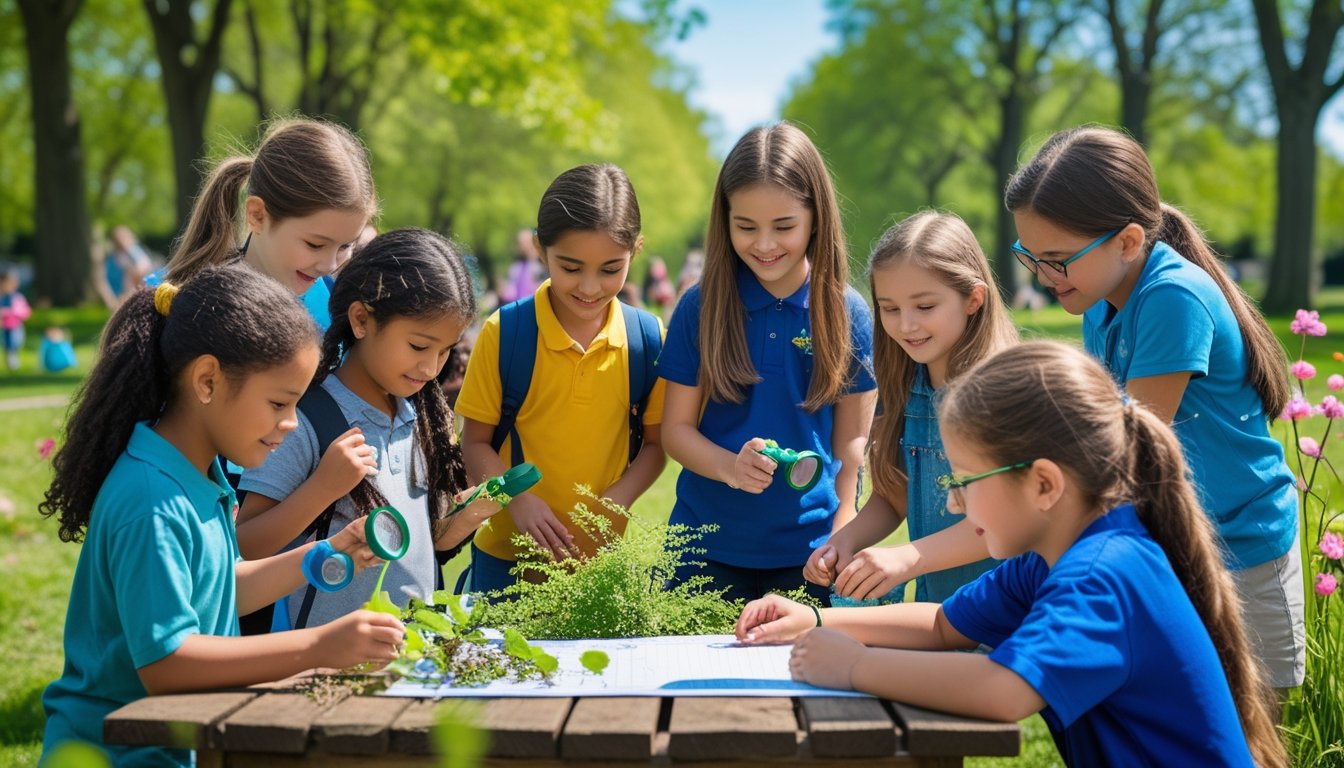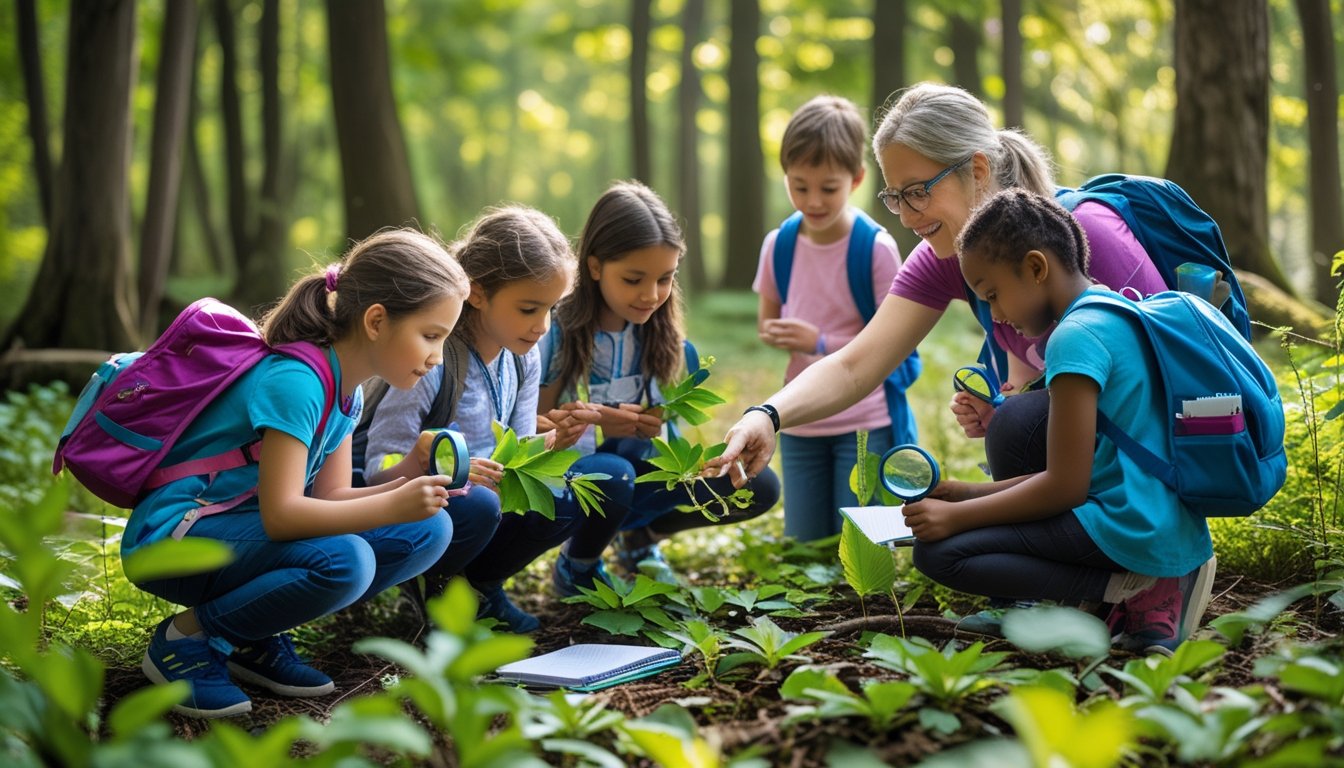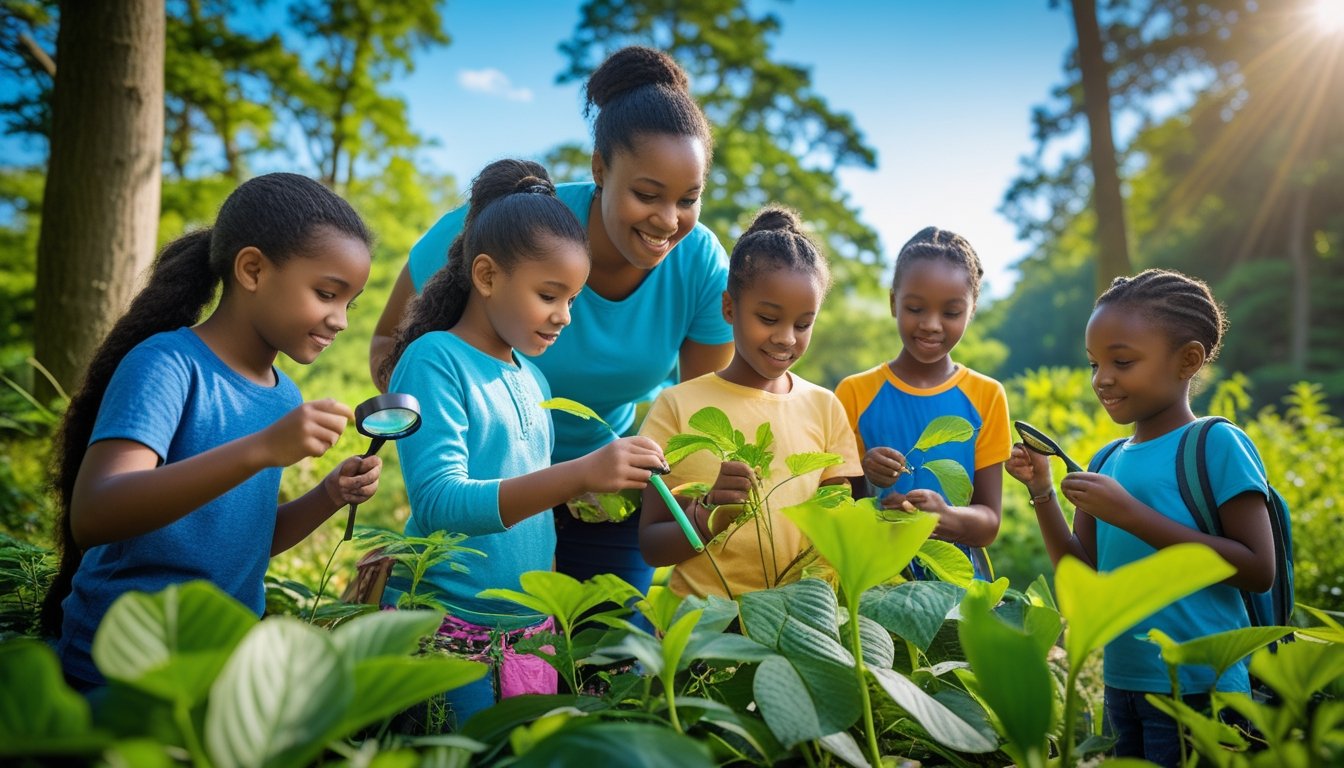Late updated: 14 Jul 2025 18:07
Written by:
Exploring Benefits Of Outdoor Education For Children: Enhancing Growth and Development
In our fast-paced and technology-driven world, the value of stepping outside for learning is being increasingly recognised. Outdoor education isn't just about fun in the sun; it presents critical developmental benefits. Engaging in outdoor activities promotes children's physical health, emotional well-being, and social skills. This immersive form of learning enhances motor skills as children run, jump, and explore the natural world around them.

Outdoor education fosters a connection to nature, offering unique opportunities for hands-on learning. This connection encourages environmental awareness from a young age. Being in nature offers a classroom without walls, allowing children's curiosity to thrive. Through exploration and interaction, children develop life skills and a love for learning that lasts a lifetime.
As we navigate this educational journey, our goal is to provide children with enriching experiences that go beyond traditional learning methods. Outdoor education is not just an educational tool but an adventure that promotes growth and discovery. By incorporating outdoor lessons, we equip children with valuable skills and insights that support their overall development and nurture an enduring appreciation for the environment.
Key Takeaways
- Outdoor education enhances physical health and social skills.
- It nurtures environmental awareness and love for nature.
- Practical experiences in nature promote lifelong learning.
Core Benefits Of Outdoor Education For Children
Outdoor education offers a wide range of advantages that impact various aspects of children's development. From physical health improvements to enhanced creativity and social skills, these benefits collectively contribute to a child's holistic growth.
Physical Health and Motor Skills Development
Outdoor activities play a crucial role in enhancing physical health and developing motor skills. Running, jumping, and climbing trees are more than just fun; they significantly improve children’s overall fitness. Regular engagement in such activities helps bolster cardiovascular health and muscle strength.
Furthermore, these activities support the development of coordination and balance. Children learn to navigate different terrains, which refines their spatial awareness. In the early years, these physical endeavours lay a foundation for a lifetime of active living and good health, serving as a vital component of child development.
Enhancement of Cognitive Growth and Critical Thinking
Outdoor education also amplifies cognitive development by fostering an environment rich with opportunities for problem-solving and exploration. Children who engage in nature-based activities often exhibit better critical thinking and problem-solving skills, bolstered by firsthand experiences.
Activities that involve observation skills, such as examining insects or identifying plant species, improve attention span and concentration. These experiences nurture curiosity while enhancing memory retention and application, ultimately contributing to academic performance and cognitive prowess.
Social Skills, Cooperation, and Emotional Intelligence
Interacting with peers in outdoor settings improves social skills and promotes cooperation. Children learn to work as a team while respecting shared goals. Teamwork and cooperative play help develop self-confidence, resilience, and conflict resolution skills.
Outdoor education also nurtures empathy and emotional intelligence as children learn to communicate and understand differing viewpoints. These experiences foster emotional well-being, encouraging self-regulation and a deeper emotional understanding that benefits their mental health significantly.
Promotion of Creativity, Curiosity, and Imagination
Finally, outdoor education inspires creativity and imaginative play. Without the constraints of four walls, children find the freedom to express their curiosity and inventiveness. They might turn a simple stick into a magic wand or a fortress, spurring imagination to run wild.
Unstructured play in nature allows children to experiment and explore. This kind of play nurtures innovative thinking and problem-solving, supporting children’s development in ways that structured educational environments cannot achieve. By encouraging such exploration, we provide a rich canvas for a child's innate creativity to emerge and flourish.
Connection To Nature And Environmental Awareness

In our exploration of outdoor education for children, we uncover crucial elements that enhance a child's bond with nature and develop their understanding of environmental issues. Through practical engagement and experiential learning, children not only connect with the natural world but also cultivate a sense of responsibility towards it.
Fostering Environmental Stewardship And Conservation
Environmental stewardship begins with awareness and care for our surroundings. By engaging in outdoor education, children can actively participate in activities such as planting trees, cleaning parks, or observing wildlife. These hands-on experiences foster a sense of accountability for the environment.
Through environmental education, children learn about the importance of conservation efforts and sustainability. They come to understand the impact human actions have on nature. This early engagement lays the foundation for responsible behaviour towards our planet.
Nature-Based Learning Experiences
Nature-based learning provides a dynamic classroom without walls, where children discover the world through direct experience. Activities like nature walks and interactive outdoor lessons integrate environmental education with traditional subjects, enhancing cognitive development.
These experiences highlight the interconnectedness of ecosystems and teach children how to apply critical thinking to environmental issues. This practical approach makes learning engaging and memorable. By encountering real-world ecological problems, children can develop problem-solving skills and adaptability.
Encouraging A Lifelong Appreciation For The Outdoors
A lasting appreciation for the outdoors often begins in childhood. Through regular exposure to natural settings, children form emotional bonds with their environment. This connection can inspire lifelong outdoor activities such as hiking or camping.
Furthermore, outdoor education instils the value of environmental preservation. As children engage with nature, they develop a profound respect for the living world. Building a routine that includes time spent outdoors encourages healthy lifestyles and mental well-being.
By nurturing a love for nature early on, we cultivate environmentally conscious individuals. The benefits of outdoor education extend beyond the classroom, fostering a community of future stewards dedicated to protecting our natural world.
Frequently Asked Questions

Outdoor education is proving to be an essential component in childhood education. It has demonstrated numerous benefits, from enhancing physical health to improving social skills.
What are the key advantages of outdoor education for primary school children?
Outdoor education allows children to engage with their environment directly. It enhances critical thinking, fosters creativity, and enables the application of academic knowledge in real-world contexts. This type of education can also aid in developing resilience and teamwork skills.
How does outdoor play support a child’s development in the early years?
Outdoor play is crucial for early childhood development. It supports motor skills through active play like running and climbing. Moreover, being outside enables children to learn about their environment, which stimulates curiosity and boosts cognitive development.
In what ways does outdoor learning benefit children’s physical health?
Engaging in outdoor activities promotes physical health by encouraging exercise, improving coordination, and building strength. Exposure to sunlight also aids in vitamin D production, which is essential for healthy bone development.
Can outdoor education improve social skills among young learners?
Participating in outdoor education often requires collaboration and communication. Children learn to work together to solve problems and navigate challenges, enhancing their social skills and helping them build stronger relationships with their peers.
What are the psychological benefits associated with outdoor activities for youngsters?
Outdoor activities have been shown to reduce stress and anxiety levels in children. Exposure to natural environments can improve mood, focus, and overall mental health. These benefits are vital in creating a balanced and supportive learning atmosphere for children.
How does exposure to nature through outdoor learning impact childhood education?
Nature-based activities can deepen children’s appreciation for the environment and enhance their critical thinking skills. Interaction with the natural world encourages observational skills and curiosity, which are foundational for lifelong learning.
